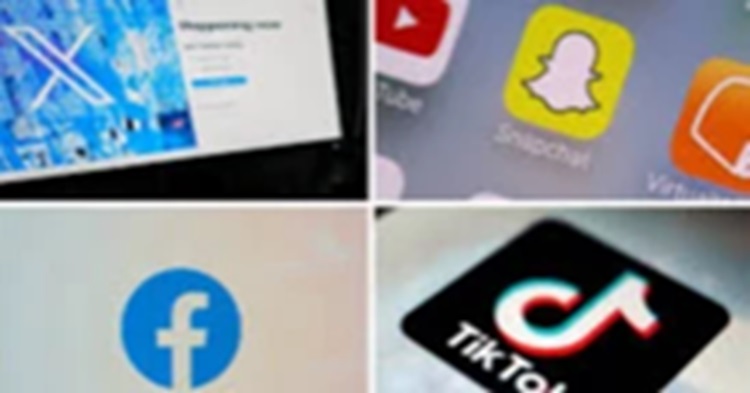Nepal’s internet crackdown reflects global trend of restricting online freedoms


Nepal’s recent ban on major social media platforms — which triggered widespread protests and led to the deaths of at least 19 people — is part of a broader global pattern of declining internet freedom, even in democratic nations, as governments attempt to tighten control over digital spaces.
The Nepalese government blocked access to platforms like Facebook, X (formerly Twitter), and YouTube last week, citing the companies’ failure to register locally as required by new rules. Though the ban was reversed on Tuesday following deadly unrest, the move reflects a growing global strategy to regulate — and in many cases suppress — online expression.
Aditya Vashistha, a Cornell University assistant professor specializing in information science, said the situation in Nepal is consistent with broader efforts seen across South Asia, including in India, Pakistan, and Bangladesh. “Governments are increasingly trying to control narratives and restrict the flow of information,” he noted. “This is a well-worn playbook.”
Push for Local Oversight
Like its neighbors, Nepal has demanded that tech companies set up local representatives and comply with national laws meant to monitor and regulate online content. Officials argue these measures promote accountability, but critics say they’re designed to silence dissent and censor opposition voices online.
Kian Vesteinsson of Freedom House, a U.S.-based nonprofit focused on democracy and human rights, acknowledged that governments have a legitimate interest in setting rules for digital platforms. “It’s reasonable to want regulation,” he said. “But broad shutdowns like Nepal’s cause massive harm — cutting off millions of people from essential tools used for communication, education, business, and healthcare.”
A Global Pattern of Declining Internet Freedom
According to Freedom House, 2024 marked the 14th consecutive year of worsening internet freedom globally. Authoritarian measures are rising, and more people are being arrested simply for sharing political or religious views online. China remains the most restrictive environment for internet use, with Myanmar also ranked at the bottom. While Nepal wasn't specifically analyzed, similar trends are emerging there.
In India, a 2023 telecommunications law granted the government wide-reaching powers to monitor and restrict online communication. Previous laws also brought digital platforms under direct government oversight, officially to combat misinformation and hate speech. However, critics argue these laws are used to suppress dissent.
Pakistan’s parliament passed a bill in early 2024 that gives the government even greater control over social media, including the ability to imprison users for spreading so-called disinformation.
Internet Freedom as a Democratic Pillar
Freedom House emphasizes that unrestricted online access is vital for modern democracy. The ability to share and receive information freely underpins democratic engagement. Yet, more and more governments are using regulations — often justified as efforts to combat crime, protect children, or prevent fraud — to limit freedom of expression.
Vesteinsson pointed out contradictions within the proposed Nepali regulations. For instance, while the law targets serious issues like human trafficking, it also includes provisions to ban anonymous posting, a critical tool for activists and whistleblowers.
The Committee to Protect Journalists condemned Nepal’s social media ban, saying it not only undermines free speech but also obstructs journalists’ work and the public’s right to access information.
VPN Usage Soars, But It’s No Cure-All
In response to the restrictions, use of VPNs (virtual private networks) has surged in Nepal. According to encrypted services provider Proton, VPN signups in Nepal rose by 8,000% since September 3. VPNs allow users to bypass geographic restrictions by masking their location.
However, Vashistha cautioned that VPNs are not a perfect solution. They can be costly, reduce internet speed, and may not be accessible to everyone, especially in low-income areas.
Major tech companies — including Google (YouTube), Meta (Facebook, Instagram, WhatsApp), and X — have not commented on the Nepal situation. TikTok, which registered with the government, remains operational.
Vesteinsson urged these platforms to take stronger measures to protect user data, particularly for human rights activists and others vulnerable to government surveillance.
“It’s critical that these platforms prioritize user safety, especially in repressive environments,” he said.
